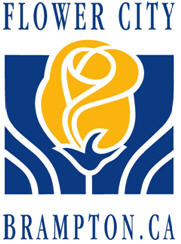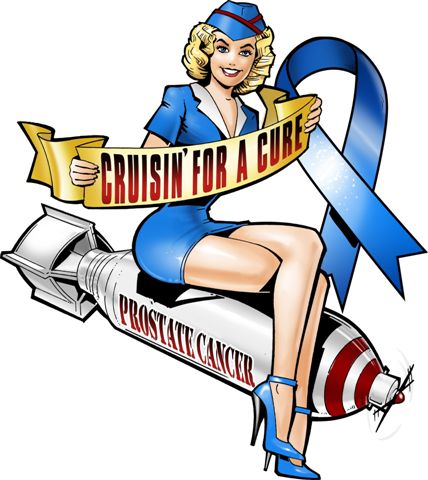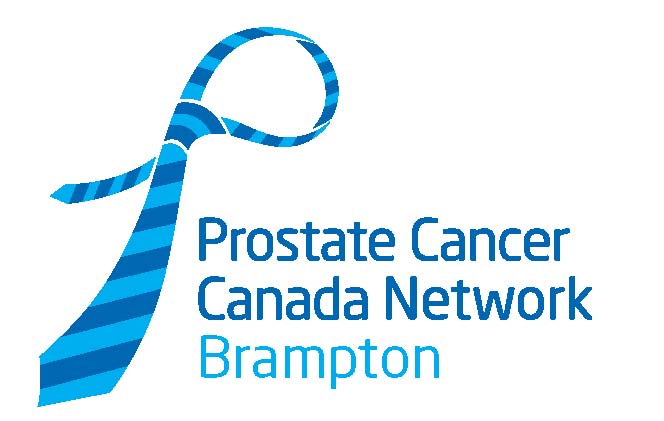
November General Meeting
|
|
Nov
11th 2008
“Why is PSA Still Important”
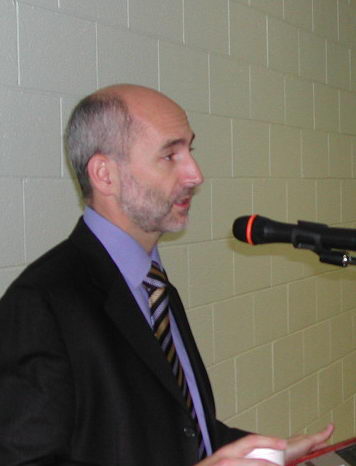
Dr. Gerard Morton
Assistant Professor, Department of Radiation Oncology,
University of Toronto, Radiation Oncologist,
Toronto-Sunnybrook Regional Cancer
Centre and Sunnybrook and
Women's College Health Science Centre

Dr. Morton
gave a very informative presentation on many aspects of PSA testing
and
its relevance to an audience of over 45 members, spouses and guests.
The topic came about as a result of member request - admittedly it had
been a while we had a talk
specifically on PSA. The closest talk focused on PSA was provided, several
years ago, by the Director
of Dynacare Labs and that was from the perspective of PSA Lab Testing
methodologies.
Dr. Morton opened his talk by explaining that PSA was a protein found in
the seminal fluid and
manufactured by the prostate to keep the semen liquid. A small amount
could get into the blood
stream and be measured as the PSA level. Recounting the history of PSA he
described how it
was first discovered in the 1960's by Dr. Hara researching the field of
forensic science as a
method for semen detection. On a more humorous note, PSA testing , for a
while at least, found
applications in "Home Infidelity detection kits". Early researchers had
also hoped to find some use
in contraceptives. It was during the early 80's ' that a link between PSA
and Prostate Cancer was
observed that led to PSA test evolution.
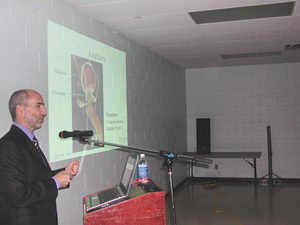
Dr. Morton provided insights as to the structure, source
and generation of PSA, the prostate
ducts, the mechanism by which it was passed from the prostate gland into
the blood stream
and the significance of Free and Complexed PSA. During Prostate Cancer the
Prostate
generated less Free PSA than normal and ratios of less than 10% free to
total PSA suggested
a 50 % chance of finding cancer on biopsy whereas ratios of more than 20 %
Free to total
PSA suggested only a 10 % chance of finding cancer on biopsy. He also
clarified that PSA
could be elevated due to many reasons and that by itself a high PSA did
not necessarily mean
prostate cancer and conversely that prostate cancer did not always
necessarily imply an
elevated PSA. He discussed what was normal PSA, illustrating a PSA trend
chart by age
for a sample population. The talk then went into many details of the role
of PSA testing
in early detection, how by itself PSA had limited value in screening but
became a useful tool
in early detection when combined with other indicators such as DRE, age,
symptoms, race
and family history and its role in monitoring, prognosis and treatment
response. Dr. Morton
described the different staging classifications, explained Gleason score,
the prognostic
groupings and the different treatment options based on the risk group. He
talked
about salvage therapy, illustrating the management of rising PSA after
treatment
with many examples from real life.
A useful free tool developed by Sunnybrook with other collaborators and
available for use
over the internet by anyone is the "Sunny brook Prostate Risk Calculator"
.
Some members have requested a link to this tool - here it is:
http://prostatecancerinfolink.net/risk-prevention/sunnybrook-prostate-cancer-risk-calculator
We had an highly interactive Question and Answer session
with many relevant questions coming forth.
The Q& A session provided as much if not more detail as the talk itself on
a variety of PSA aspects
Overall the evening went extremely well for all despite
the initial glitch of having been switched to a
much smaller room at an extremely short notice. On a brighter note we will
be back to enjoying a
fully renovated floor in our usual room (# 2 upstairs) at the Tterry
Miller from our December meeting
onwards.
We are pleased to provide links below to the Audio Recordings and
Presentation Slides for this session.
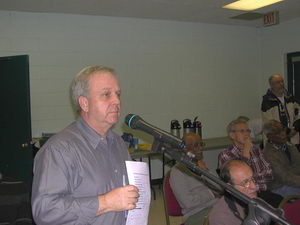
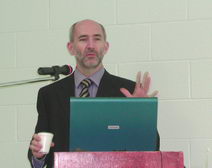
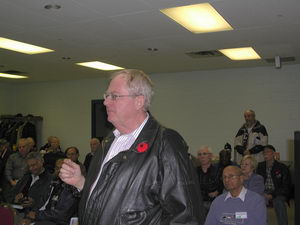
AUDIO & SLIDES DOWNLOADS
AUDIO:
NO AUDIO
AVAILABLE
SLIDES:
PROSTATE CANCER AWARENESS!
Prostate Cancer Canada Network - Brampton
·
Tel: 905- 453-3038 · Fax: 905-840-9474 · Email: info@pccnbrampton.com

